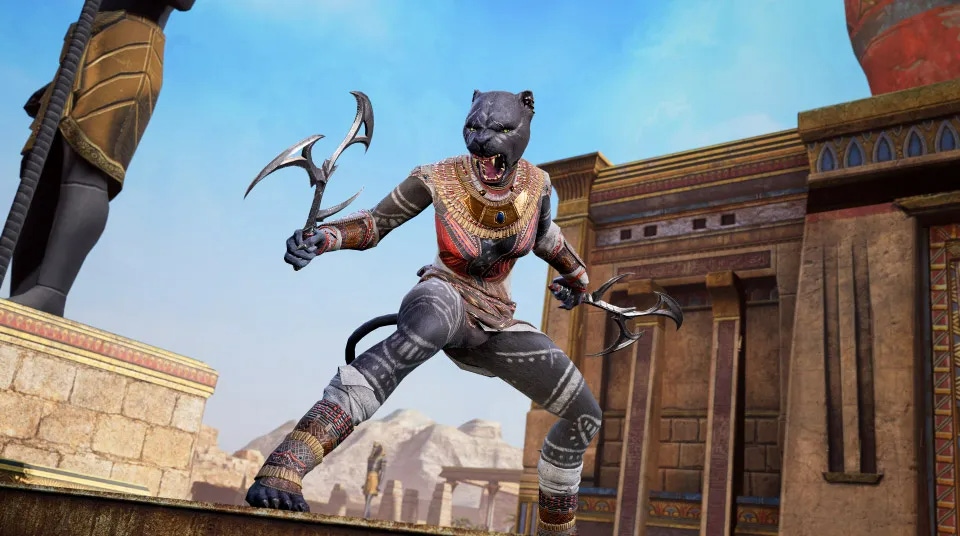Trending
Opinion: How will Project 2025 impact game developers?
The Heritage Foundation's manifesto for the possible next administration could do great harm to many, including large portions of the game development community.
Sanzaru Games game director Bill Spence says Asgard's Wrath 2 is getting players to spend more and more time in virtual reality.

There's a common refrain in virtual reality development that VR-first games can't take too much time. As headsets like the PlayStation VR2 and Meta Quest 3 have hit the market, developers have had to grapple with the fact that even the most comfortable of headsets get really sweaty really quick, especially when the player is moving their body around.
But Asgard's Wrath 2 developer Sanzaru Games may have found the formula for keeping headsets plastered on the heads of highly-engaged players. The critically acclaimed open-world RPG (a rarity in virtual reality) recently won "Immersive Reality Game of the Year" at the 2024 DICE awards, and in a backstage chat with Sanzaru Games, game director Bill Spence explained to Game Developer that the studio is breaking records for player engagement.
Since the game's launch in September 2023, some hardcore players have spent over 250 hours playing Asgard's Wrath 2. "We're talking dozens and dozens of hours," Spence said, commenting that the milestone was a major rebuttal of the idea that players won't spend more than an hour or two wearing a VR headset.
The quality of Asgard's Wrath 2 definitely isn't in doubt. Its average Metacritic score clocks in at 87 percent, and outlets like IGN have called it "the new gold standard" of virtual reality. The technical challenges of creating a high-quality open world game apparently sent the developers at Sanzaru diving into the history of older open-world games—back to an era when developers were creating expansive worlds with lower poly counts and fewer draw calls.
Studio creative director Mat Kraemer implied that the team's focus has been to recreate traditional PC and console experiences in VR—another "against the grain" approach compared to what we've heard from other VR developers. Technical director Evan Arnold urged developers to "not be afraid of the hardware" and to be ambitious on VR and mobile platforms. "There's so much horsepower on [PlayStation 5, Xbox, and PC Games]. You just have to go back to the old-school techniques we were using 20 years ago."
"Those big giant giant open worlds are under 300 draw calls," he pointed out, prompting a cackle from Spence. "You have to use a lot of knowledge that is maybe forgotten by a lot of [developers." It's been fun to recover that strength."
It's amusing to think of creating 300-draw-call open worlds as "forgotten knowledge," but Arnold has a point. Technological advancement has made for great open world games, but embracing platform limitations can help developers focus on what made PlayStation 2-era hits like Grand Theft Auto III, Spider-Man 2, and Beyond Good & Evil such fun experiences.
You May Also Like